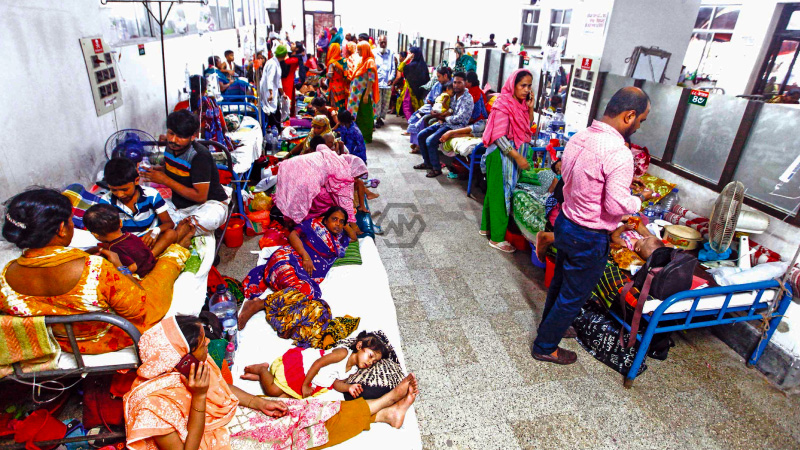At least 293 people will die and nearly 61,500 will contract dengue fever in Bangladesh by 2023. Hospitals have a difficult time accommodating patients who have high fevers, joint discomfort, and vomiting, especially in Dhaka.
Health officials have started programs to stop the spread of illnesses brought on by mosquitoes, including awareness campaigns and the extermination of mosquito larvae. The government has started programs to fight the illness, but hospitals are still finding it difficult to handle the rising patient load.
Dengue outbreak
Doctors and nurses assured Shariful Islam, a family member in Dhaka, that although they couldn’t give them a comfortable bed, they would still treat them if they stayed.
There is no specific vaccine or medication for dengue, a widespread illness in South Asia during the monsoon season from June to September. According to experts, there will be an increase in cases during August and September, and the number of deaths this year will surpass the previous high of 281 set last year.
- Bangladesh faces a dengue fever crisis, causing 293 deaths, and 61,500 cases.
- Doctors promise Shariful Islam, Dhaka family, comfortable treatment despite lack of bed.
- Dr. Arafat emphasizes children’s health impact of extreme weather events.
Less than 1% of patients who suffer can die thanks to early discovery and access to quality medical care. April’s pre-monsoon rains resulted in Aedes mosquito reproduction, which helped the illness spread throughout the neighborhood.
Due to this, there were a lot of dengue cases in July, and more cases are anticipated in August and September.
The impact of extreme weather events on children’s physical and mental health was stressed by Dr. Yasir Arafat, Save the Children’s senior health and nutrition advisor for Asia, underscoring the critical need for quick action.



